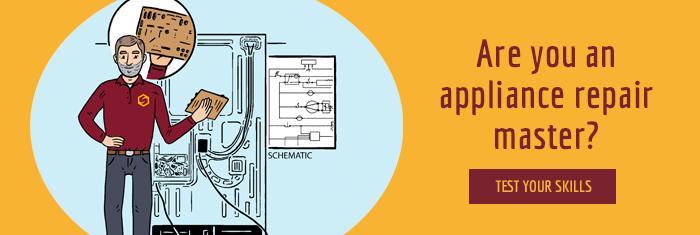FAQs | Repair Videos | Academy | Newsletter | Contact
Search the Community
Showing results for tags 'dc motor starter'.
-
This all started with and E3 error code. I replaced the motor with a used motor. Same problem -- but before anybody starts in on me please consider that I live in a remote little village in the jungles of southern Costa Rica. All appliance repair is DIY and parts are nearly impossible to find -- and they cost 3 to 5 times as much as in the States. So with all of this as background let me tell you what I've seen, or rather heard, and maybe somebody on this forum can help me sort it out. The motor won't start which of course ends in an E3. The Hall sensor is evidently working just the way it is supposed to. The drum, while I can hear a wee bit of unpleasantness in the bearings, turns freely. When the motor is trying to start I hear a short chatter, like a chattering relay armature, for about 1 to 1.5 sec. This repeats another 4 times at 2 to 3 sec intervals before it codes out. If I take the belt off it starts every time however. At that time I also hear a very shortened burst of that same chatter begin just as the motor starts up. So I, being profoundly ignorant in these matters have consulted the all-knowing internet and have come to the conclusion that what I am hearing is the DC motor starter. If I understand it correctly, when a DC motor starts up we will see high current flow and low torque. To overcome that little problem requires a starter with some sort of mechanical device that successively switches out (i.e. removes) resistance as the motor begins turning. Now, to bolster this diagnosis I have also noted that the series of clicks that I referred to as "chatter" concludes in a clunk. This is consistent with descriptions I have found of 3 or 4-point starters where the "starter armature" is held in the run position until the motor is switched off, at which time the armature it is returned to the off position by a spring (ka-thunk). When the motor does run I also hear that same clunk just as the motor is switched off, just as I would expect. Finally my used replacement motor also trips the GFCI about 10% of the time just at the instant I would anticipate the "chatter" to start. A failed or failing starter would again seem consistent here. That is, the lack of back EMF results in very high current flow. So extrapolating further, all of this would seem consistent with a failed primary resistance (or primary, secondary and maybe even tertiary) resistance. In other words, the starter armature proceeds through the first couple clicks (remember I hear some shortened "chatter" begin before the motor actually starts -- when it does start that is) so the first current the motor sees would be with less resistance, thus allowing greater current (accounting for the GFCI tripping) but insufficient torque to get the motor moving when under even the slightest load. Now, both of my (well used) motors have the same problem or at least the same symptoms. This gives me pause. On the one hand I wonder -- is the starter such a common failure point that I would expect both old motors to have the same problem? On the other hand, if I was to start looking for failure points I would always start with the mechanical elements first. The question this leaves unanswered is why it would be intermittent. One would think, or at least I would surmise, that such a failure would be a hard failure. Then again, if everything has cooled down the motor just might be able to muster enough torque to get it started, if, if, if....... Finally, I know that "the dots" can always be connected in lots of different ways -- especially by the ignorant. This all seems so right though. CAN ANYBODY CONFIRM MY DIAGNOSIS, GIVE ME SOMETHING ELSE TO HANG MY HAT ON or at least add to the train of logic here before I start tearing into the guts of the motor (at least I have two to play with). I really hate beating my clothes on rocks at the river. Somebody help me please. AND, thank you for sticking it out far enough to read this. cheers, jerry

